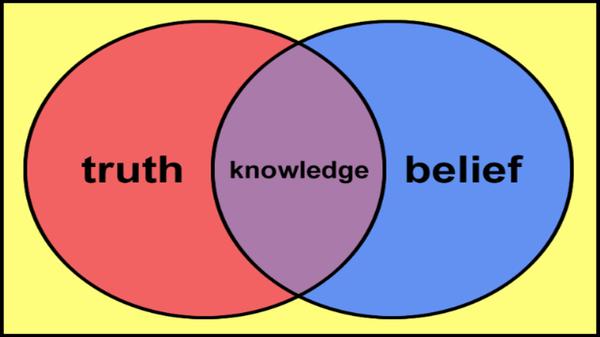introduction
Inthe1970s, WilliamPerryfirstconductedagroundbreakingstudyontheepistemologicalbeliefsofcollegestudentsthroughquestionnairesandinterviews.Inthefollowingdecades, manyscholarsFromdifferentanglesandusingdifferentmethods, alargenumberofstudieshavebeenconductedontheindividual'srelevantknowledgeandknowledgeacquiredbeliefs, whichwecollectivelyrefertoasthestudyofpersonalepistemology [3] .Althoughdifferentresearchershavedifferentunderstandingsofpersonalepistemologyandusedifferentterminology, thecoreoftheirresearchandemphasisisthesame, thatis, theindividual'sviewofknowledge, thatis, theindividual'sholdingofknowledgeandknowledgeacquisitionBeliefsmainlyincludebeliefsaboutknowledgestructureandnatureofknowledge, beliefsaboutknowledgesourcesandknowledgejudgments, andtheroleofthesebeliefsinregulatingandinfluencingtheprocessofindividualknowledgeconstructionandknowledgeacquisition.
Modèle
Tout au long de l'histoire de la recherche en épistémologie personnelle, une approche très importante dans le domaine de la recherche consiste à explorer le processus de développement de l'épistémologie personnelle sous l'angle du développement [3,4].
1. Schéma de développement intellectuel et ethnique (Schéma de développement intellectuel et ethnique)
Undernormalcircumstances, theindividual'sviewofknowledgeisfirstofalldualism, anditscharacteristicsareHoldsadualistic, absolue, etsoit-orconceptoftheworld.Thenitdevelopedintopluralism, andbegantorecognizethediversityanduncertaintyofopinions, thinkingthateveryonehastheirowncorrectopinions.Frompluralismtorelativism, itscognitivecharacteristicistoadmitthatsomeviewpointsarebetterthanothers.Thehigheststageisthecontractstageofrelativism.Individualshavetheirownpositionsandopinionswhenanalyzingthings.Theycannotonlyadheretotheestablishedpositions, butalsomakeadjustmentsflexibly.Therearenotmanystudentswhocanreachthisstage.

2. La manière de savoir de la femme (La manière de savoir de la femme)
Attheendofthe1970s, feministpsychologyemergedintheWest.Thedisplayedtraditionalandrocentricvalues werecriticized.Inthiscontext, BelenkyandothersquestionedWilliamPerry'stheorybecausehisconclusionsweredrawnfrommalecollegestudents [3] .Atthesametime, onthebasisofPerry'sresearch, Belenkyetal.used135womenfromvariousfieldsassubjects, usedsemi-structuredinterviewresearchmethodstoconductresearch, andproposedadevelopmentschemaforwomen'sknowledgeacquisitionmethods.Theybelievethatwomen'sknowledgeacquisitionmethodsarebasedonthesourceofknowledgeandtruthandareintertwinedwithself-concepts.ThedevelopmentprocessdoesnotmatchPerry'sschema, butincludesfivecognitivepositions.TheyTheyare: Silence,dans lequellesfemmessontdesêtrespassifsetsansvoix,complètementobéissantsàl'autoritéexterne. bjectif,etl'acquisitiondesconnaissancessubjectivesestbaséesurlapenséeintuitive.Laconnaissanceprocédurale,lesfemmesdanscettepositioncroientquel'acquisitiondesconnaissancesnereposepassurl'intuition,maisrequiertuneréflexionobjectiveetsystématique.
3.Modèle de réflexion épistémologique (modèle de réflexion épistémologique)
BaxterMagoldaisinterestedinpersonalepistemologicalissuesrelatedtogender.Heselectedthesamenumberofmaleandfemalesubjects, conductedafive-yearlongitudinalstudyintheformofopeninterviews, andproposedanepistemologicalreflectionmodel [15] .Thismodelincludesfourcompletelydifferentassumptions.Theabsoluteknowerregardsknowledgeasdefiniteandbelievesthattheauthorityknowsalltheanswers.Thetransitionalknowerfindsthattheauthoritycannotknowtheanswerstoallquestionsandbeginstoaccepttheuncertaintyofknowledge.Theindependentknowerbegantoquestionauthorityastheonlysourceofknowledge, believingthattheopinionshehadwereequallyvalid.Thecontextualknowerconstructsapersonalpointofviewbyjudgingthecontextualevidence, believingthatexpertsshouldalsobeevaluated, knowledgeisdeveloped, andknowledgeisconstantlybeingreconstructedbasedonnewevidenceandnewsituations.Situationalcognizantsarerareinresearch, andonlyafewpeoplecanreachthislevel.Althoughtheoveralldevelopmentpatternsofmenandwomenaresimilar, BaxterMagoldabelievesthatgender-liés Les méthodes d'acquisition des connaissances peuvent apparaître dans les premières étapes du développement, puis fusionner avec le contexte cognitif.
4.Modèle de jugement réfléchissant
BasedonWilliamPerry'sresearchandDewey'sresearchonreflectivethinking, KingandKitchener'sassumptionsaboutepistemologyTheinfluenceofreasoningwasstudied.Theyconductedlong-terminterviewswithsubjectsfor15yearsfromhighschooltoadulthood, focusingontheunderstandingoftheprocessofknowledgeacquisitionwhenpeoplemakejudgmentsontheproblemsofpoorlystructuredareas, andproposedanepistemologicalreflectivejudgmentmodel [16] .Themodelincludes7differentstages (Etapes) anddividedintothreelevels: pré-reflectivethinking (pré-reflectivethinking) includesstages1,2and3, thatknowledgeissimple, déterminée, absolue, allproblemsThereisacorrectanswer, andthecorrectanswerisoftenknownonlybyauthority.Quasi - la pensée réflexive (pensée quasi-réflexive), y compris les étapes 4 et 5, se caractérise par le fait de commencer à reconnaître l'incertitude du processus d'acquisition des connaissances et de croire que chacun a son propre point de vue. La pensée réflexive, y compris les étapes 6 et 7, considère que les connaissances sont activement construites et doivent être comprises dans le contexte, et que les jugements doivent être réévalués.
5.Modèle de raisonnement argumentatif
WhileKuhnstudiesindividuals'argumentationandreasoningonill-structuredproblemsindailylife, italsopaysattentiontoindividuals'holdingsofknowledgeacquisitionSomebeliefs.Basedonthreecommunityissuesthateveryoneisveryconcernedabout, sheinterviewedsubjectsatfouragesandputforwardthreetypesofepistemologicalbeliefs: absolutistes, whoregardsknowledgeasdefinite, Absolument, emphasizingfactsandexpertsarethebasisofunderstanding, andhaveahighdegreeofcertaintyabouttheirbeliefs.Multiplistsdenythecertaintyofexperts, andstarttohavedoubtsaboutexpertsingeneral.Theybelievethatovertime, theyshouldnotagreewithexperts.Thecharacteristicofthepluralistpositionisradicalsubjectivism.Whilereducingthevalueofexperts, itemphasizesthatemotionsandbeliefsaremoreimportantthanfacts.Inthisposition, beliefsareownedbyindividuals, andeveryindividualisdifferent, andallopinionsaredifferent.Theyareallequallylegitimate, andtheiropinionsmaybeasreasonableasthoseofexperts. L'étape d'évaluation nie la certitude des connaissances. car leurs opinions ne sont pas aussi correctes que celles des experts. Plus important encore, ils pensent que leurs points de vue sont comparables et évalués.
